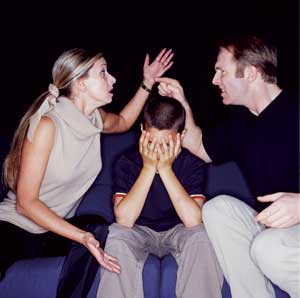- HOME
- PSYCH SERVICES
- BUSINESS & PERFORMANCE PSYCHOLOGY
- CLINICAL, COUPLES, & FAMILIES
- ADHD Treatment & Evaluation Services
- Anger Management
- Anxiety Treatment & Evaluation Services
- Borderline Personality Treatment Services
- Cognitive Behavioral Therapy (CBT) Self-Help
- Couples Counseling and Marital Therapy
- Consent for Psychological Services for Minors Post-Divorce
- Depression Treatment Services
- Infidelity Recovery
- Jacksonville Counseling and Psychology
- Military Psychology & Tricare
- Narcissistic Personality Treatment Services
- Online Counseling
- Psychoeducational Testing
- Psychological Testing and Assessment
- Psychotherapy & Counseling
- FORENSIC PSYCHOLOGY & EXPERT TESTIMONY
- LIFE COACHING & EXECUTIVE COACHING
- PSYCHOLOGICAL PUBLIC DISABILITY QUESTIONNAIRES (DBQ)
- ONLINE COURSES
- Our Partnership Begins When You Purchase an Online Course
- Get to Know Dr. D’Arienzo, Relationship Expert
- Florida Premarital Preparation Online Course
- Georgia Premarital Education Online Course
- TwogetherinTexas Premarital Online Course
- Tennessee Premarital Preparation Online Course
- Minnesota Premarital Education Course Online
- Oklahoma Premarital Counseling Online Course
- South Carolina Premarital Preparation Course
- West Virginia Premarital Education Course
- Online Marriage and Relationship Tune Up Course
- Florida DCF Certified Parent Education and Family Stabilization Online Course
- Georgia Qualified Parent Education and Family Stabilization Online Course
- Texas Qualified Parent Education and Family Stabilization Online Course
- High Conflict Co-Parenting Online Certificate Course (8 Hours)
- Online Anger Management Four Hour Course (Level 1)
- Online Anger Management Eight Hour Course (Level 2)
- Sexual Harassment Online Training
- MMPI/GUARD/LEO
- CPI Police and Public Safety Assessment
- G License Psychological Testing
- Online Psychological Testing for Armed Security Guards and Personal Protection Officers
- MMPI Texas Level III CSO and IV PPO Psychological (ONLINE)
- Requirement for Texas Security License Applicants: MMPI Evaluation
- Level 3 Security Guard New Mexico Online MMPI Psychological Evaluation
- TEAM
- SOCIAL MEDIA/BOOKS
How Do You Help Your Children with Divorce?
Posted by: Dr. Justin D'Arienzo, Psy.D., ABPP
How Do You Help Children with Divorce?Daily in my clinical and forensic psychology practice, I am asked how do you help your children with divorce. This question comes from patients and clients that are divorcing as well as their attorneys working with their clients and trying to assist the parties in establishing the best visitation or time-sharing schedule for their clients’ children. As a psychologist specializing in working with these families I am well versed in the challenge of divorce and the potential consequences children face.
If you are getting divorced one of the best places to begin is by taking our divorce and parenting class entitled, Healthy Divorce Healthy Kids. This parenting course is a DCF approved Parent Education and Family Stabilization Course. Taking a course such as this is a required step in the Florida divorce process. Not only will you be learning things about yourself, but you will also be learning how to divorce with the fewest complications for your children, yourself, and your future former spouse.
In our divorce course we cover many topics to include effective ways to co-parent with your future former spouse. Co-parenting is one of the best ways you and your former spouse can help your children. Communication with your former spouse is the most important characteristic in coparenting.
HEALTHY DIVORCE HEALTHY KIDS; PARENT EDUCATION & FAMILY STABILIZATION COURSE LINK
Often in divorce scenarios, many times divorced parents do not get along. When this is the case, it is imperative that parents keep in mind the well-being of their children and to always provide information, to the other parent. The rule is that anything that you yourself would want to know is what you need to share with your former spouse. When parents don’t communicate with the other parent, it absolutely has harmful effects on the children. When parents don’t communicate they fail to share about important events and academic and health information. As a result, the children are hurt physically and emotionally.
One way to improve the relationship with your spouse is to treat them as a business partner. In this manner, communication is professional, detailed, and focused on the business at hand (the child or children), and cooperative. In business we often don’t enjoy speaking to a coworker, boss, or subordinate, but we do it anyway respectfully in order to get the job done.
I recommend the following steps to improve communication and coparenting in order to help your children cope with divorce:
- 1. Be very brief, to the point, respectful, friendly and business like.
- 2. Ensure the conversation is about the child(ren) past, present, or future events.
- 3. Do no over react, no matter what.
- 4. Give the former spouse the benefit of the doubt. Do not jump the gun and judge…relax!
- 5. Do not use sarcasm, profanity, demands, or accusations. Do not use loaded words or phrases. Remember, you are no longer married to the person so don’t expect them to change.
- 6. Use appreciative communications like please and thank you.
Finally, remember that coparenting with your former or future former spouse shows you care about your children’s needs more than you own need to be right. There are several ways that one can help their children through divorce, and coparenting is just one of them. We hope that you will take our Family Stabilization Course and learn more about divorcing in a healthy way so you and your kids are able to effectively navigate the process.
Please contact us if you need additional information about our course or about family therapy or divorce therapy at 904-379-8094.

Purchase Our High Conflict Co-Parenting Course Here




